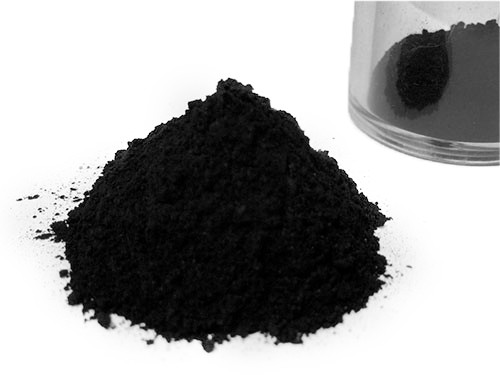Activated carbon supported rhodium catalyst
Activated carbon supported rhodium catalyst (Rh/C) is a highly efficient heterogeneous catalyst where rhodium nanoparticles are dispersed on a high-surface-area activated carbon substrate. This Rh/C catalyst is widely used in hydrogenation reactions, pharmaceutical synthesis, and fine chemical production due to its excellent activity, selectivity, and stability. Key parameters include rhodium loading percentage (1%-10%), BET surface area, pore structure, and metal dispersion, which can be customized for specific applications.
Princeton Powder is a leading suppliers and manufacturer of Rhodium carbon catalyst. this catalyst offers cost-effective performance in both batch and continuous processes, with options for recovery and recycling to maximize rhodium utilization.
| Material | Rhodium on carbon, Rh/C catalyst |
| Carrier/Support | Powdered activated carbon |
| Carrier material | Coconut shell, coal, wood, peat and so on |
| Appearance | Black powder |
| Pd content | 5%, 10%, 15%, 20% |
| CAS Number | 12135-22-7 |

Technical Parameters Rh dispersed on activated carbon
CAS No.: 7440-16-6
Specifications: Rh 1.5 Rh 101 Rh 103 Rh 105 Rh 110
Rhodium content: 0.1% ~ 30%
Carrier material: coconut shell, coal, wood, peat and so on
Carrier state: powdered activated carbon, Pellet charcoal
Specific surface area (m2/g): ≥930
Metal surface area (m2/g): 85 ~ 105
Average particle size of carrier (μm): 15, 20, 30, 50, 80, 100
Impurities (m %): Cu, Fe, Cr, Ni, Ag, Mg and other impurities ≤ 0.3
Particle strength (m %): ≥ 90
Moisture content: 0.1% ~ 65%
Ash content (m %): ≤ 5
Application of Rh/C catalyst
Pharmaceutical & Fine Chemical Synthesis – Used in hydrogenation of nitro compounds, nitriles, and aromatic rings to produce key intermediates for drugs and specialty chemicals.
Petrochemical & Refining Processes – Enhances hydrodesulfurization (HDS), hydrodenitrogenation (HDN), and selective hydrogenation in fuel processing.
Organic Synthesis – Effective for reductive amination, carbonyl reduction, and asymmetric hydrogenation in lab-scale and industrial reactions.
Environmental Catalysis – Applied in wastewater treatment and pollutant degradation due to its high activity in reductive dechlorination and detoxification.
Fuel Cells & Energy Storage – Used in electrocatalysis for hydrogen production and fuel cell applications due to rhodium’s superior electron transfer properties.
Activated carbon-supported Pd catalyst Scholar Articles
Comparison of activated carbon-supported Pd and Rh catalysts for aqueous-phase hydrodechlorination
Abstract: Different commercial and own-made catalysts, synthesized by incipient wetness impregnation, based on Pd and Rh supported on activated carbon have been investigated for hydrodechlorination (HDC) in aqueous phase using 4-chlorophenol as target compound at 100 mg/L starting concentration.
